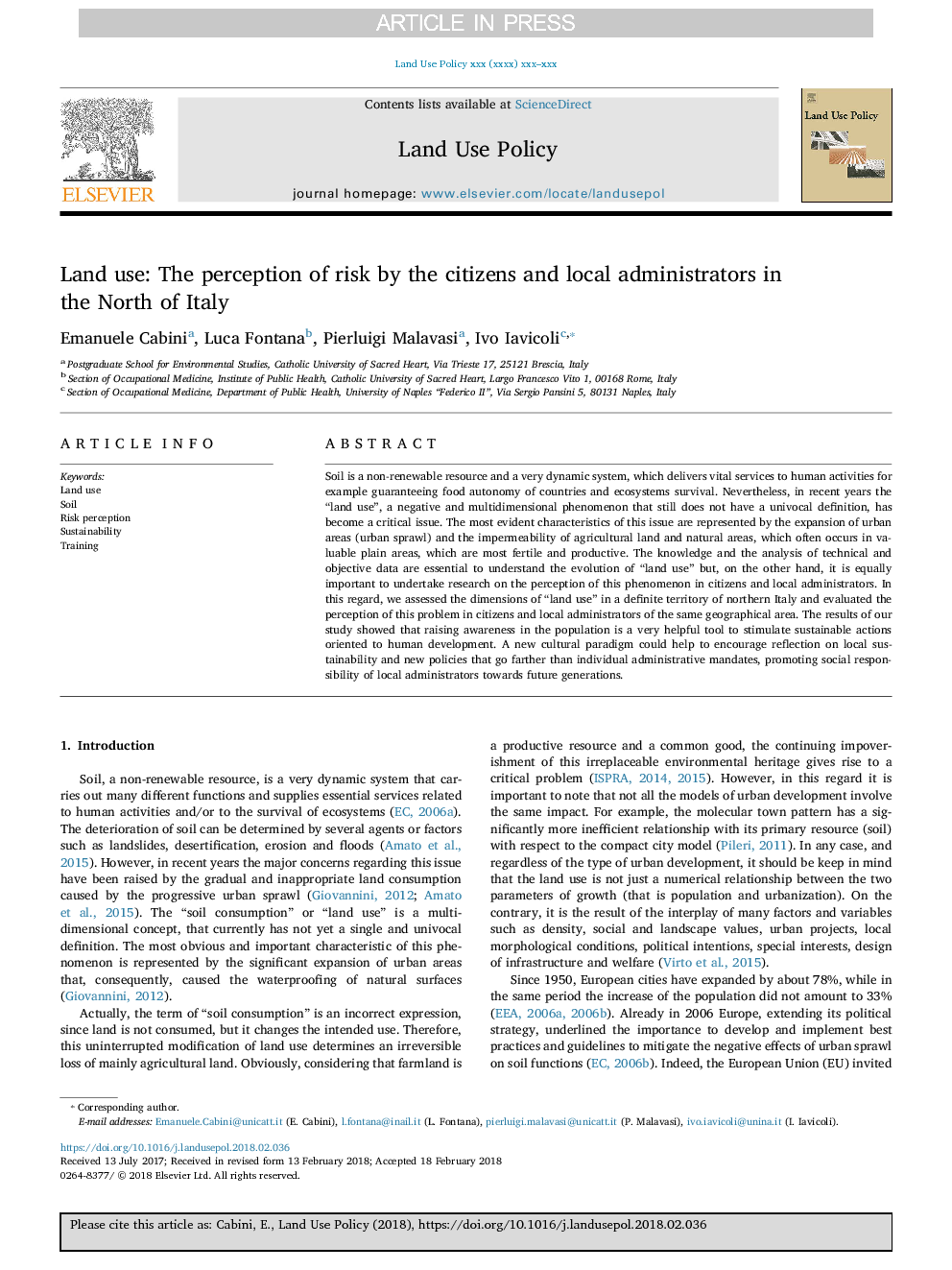ترجمه فارسی عنوان مقاله
استفاده از زمین: درک ریسک توسط شهروندان و مدیران محلی در شمال ایتالیا
عنوان انگلیسی
Land use: The perception of risk by the citizens and local administrators in the North of Italy
| کد مقاله | سال انتشار | تعداد صفحات مقاله انگلیسی |
|---|---|---|
| 131189 | 2018 | 12 صفحه PDF |
منبع

Publisher : Elsevier - Science Direct (الزویر - ساینس دایرکت)
Journal : Land Use Policy, Available online 26 February 2018
ترجمه کلمات کلیدی
استفاده از زمین، خاک درک ریسک، پایداری، آموزش،
کلمات کلیدی انگلیسی
Land use; Soil; Risk perception; Sustainability; Training;

